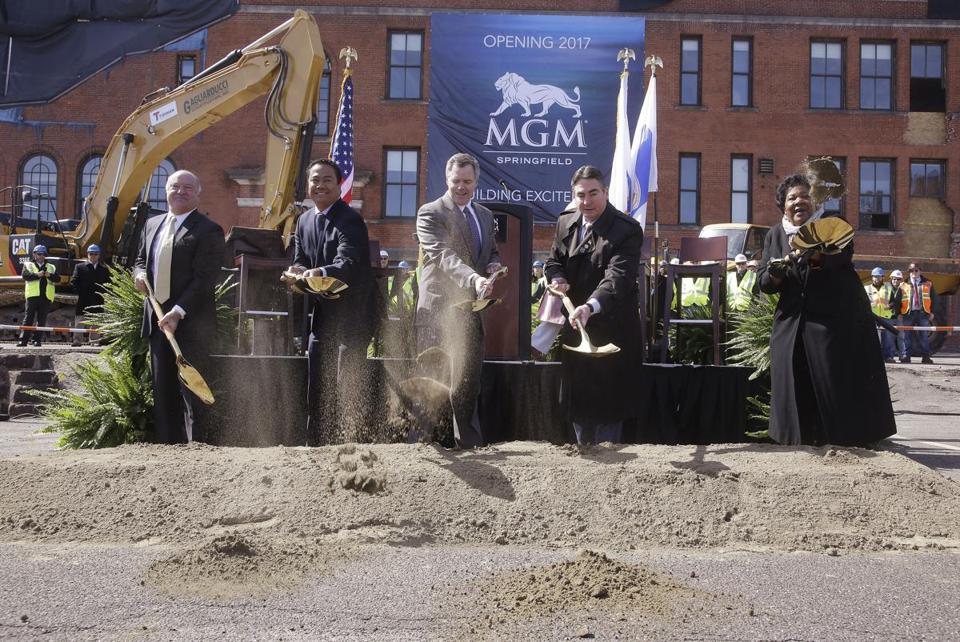Casino Revenue Gives State Governments Quick Fiscal Boost, But Long-Term Could Put Credit Rating at Risk
Posted on: August 2, 2017, 01:30h.
Last updated on: August 2, 2017, 05:28h.
Casino taxes have become a tempting cookie for many a US state looking to turn red to black in their ledger books. And for states like Nevada and New Jersey with active gaming industries, those revenues can indeed be a key component to the budget overview.

But an industry analyst is now telling states to consider the bigger picture before jumping in head-first to the brick-and-mortar gaming business.
S&P Global Ratings, a financial information firm that manages the esteemed S&P 500 index, said in a recent report that some states now face long-term credit risk. Saying commercial gambling is an unreliable and volatile revenue source, analysts Timothy Little and Rahul Jain opine that states from Maryland to Massachusetts are making a bad bet.
“While there could be short-term economic and budgetary gains, they are unlikely to improve state credit quality,” the S&P brief explained. “As states in the region continue their gambling expansion, coupled with the region’s weak demographic trends, the likelihood that these revenues will meaningfully supplement state revenues over the long-term diminishes and will have long-term credit implications.”
Since 2006, commercial casino expansion has been seen in West Virginia, Maryland, Pennsylvania, Maryland, New York, and Massachusetts.
Fees, Taxes, and Shortfalls
Commercial gambling has been seen as a quick fix to budget gaps. Costly upfront licensing fees deliver tens of millions of dollars promptly to state coffers, and allow politicians to carry on without otherwise raising taxes on constituents.
Pennsylvania charges standalone Category 2 casinos $50 million for a slot machine license, plus an additional $24.75 million for table games. In Massachusetts, MGM Springfield and Wynn Boston Harbor each shelled out $85 million for licenses, and the slots-only Plainridge Park Casino paid $25 million.
The fees add up in larger states where multiple gambling venues have been authorized. Pennsylvania is now home to 12 casinos, five more than in Atlantic City.
Despite high entrance fees and taxes placed on operators, casino revenue accounts for a relatively small percentage of most Northeastern and Mid-Atlantic states’ budgets, though. Maryland coffers took in $5.3 billion in tax money between 2010 through June 30, 2017, but its budget for the next fiscal year is over $43 billion.
Upping the Ante
When Pennsylvania passed its slots law in 2006, it was supposedly going to turn around the state’s financial woes. But as the recession hit and the state saw tax revenue further decline, Keystone lawmakers doubled down and in 2010 extended their gaming act to include table games.
Seven years later, and Pennsylvania’s $32.3 billion fiscal budget for 2017-2018 is underfunded by $2.2 billion. The state’s answer? You guessed it, more gambling.
Lawmakers are looking for ways to close the gap, and placing slots in bars, restaurants, and airport terminals, authorizing online gambling, and creating sports betting regulations are all being considered.
S&P’s position that gambling revenue isn’t a long-term solution to spending problems has, at least in the Keystone State’s case, proven to be on point. Just last month, S&P threatened to downgrade Pennsylvania’s credit rating.
Related News Articles
Connecticut Airport Casino Wins Right-To-Know Case Against MGM
Wynn Land Deal Shows Deep Connections Between Wynn, Trump, and Ruffin
Most Popular
Vegas Casino Resorts Install Detectors to Smoke Out Vapers — Report
Las Vegas Installs License Plate-Reading Cameras
Most Commented
-
Zillow: Town Outside Las Vegas Named the Most Popular Retirement City in 2024
— December 26, 2024 — 33 Comments -
UPDATE: Whiskey Pete’s Casino Near Las Vegas Closes
— December 20, 2024 — 33 Comments -
Oakland A’s Prez Resigns, Raising Questions About Las Vegas Move
— December 27, 2024 — 9 Comments -
UPDATE: Former Resorts World & MGM Grand Prez Loses Gaming License
— December 19, 2024 — 8 Comments
















No comments yet